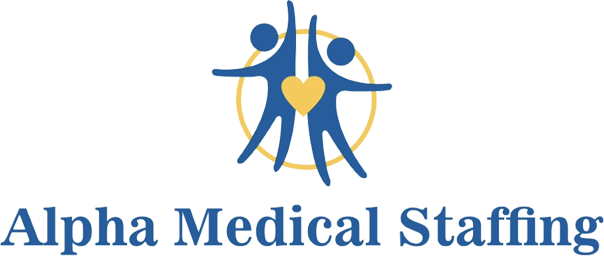Healthcare staffing agencies play a crucial role in addressing staffing shortages within the healthcare industry by connecting healthcare facilities with qualified professionals. They recruit, screen, and place healthcare workers such as nurses, physicians, therapists, and allied health professionals. According to the American Staffing Association, healthcare staffing agencies provide employment to over 3 million temporary and contract workers annually, accounting for approximately 12% of the staffing industry’s revenue. These agencies offer flexible staffing solutions, fill critical vacancies quickly, and ensure compliance with licensing and credentialing requirements, thereby supporting healthcare delivery nationwide.
Why work with experienced healthcare recruitment agency
Working with an experienced healthcare recruitment agency offers several advantages.
- Firstly, they possess a deep understanding of the healthcare industry’s nuances, including regulatory requirements and specialized skill sets needed for different roles.
- Secondly, their extensive network allows them to quickly source qualified candidates, reducing time-to-fill positions.
- Thirdly, experienced agencies often have refined screening processes, ensuring candidates meet the highest standards of competence and professionalism.
- Additionally, they provide personalized support to both candidates and clients, fostering long-term relationships.
- Ultimately, partnering with an experienced healthcare recruitment agency can streamline hiring processes, improve candidate quality, and mitigate risks associated with staffing shortages.
How to choose the right healthcare recruitment agency
Choosing the right healthcare recruitment agency involves careful consideration of several factors:
- Industry Experience: Look for agencies with a proven track record in the healthcare sector. Experience indicates familiarity with industry-specific challenges, regulations, and candidate requirements.
- Reputation: Research the agency’s reputation by reading client testimonials, online reviews, and industry recognition. Positive feedback from healthcare facilities and job seekers is a good indicator of reliability and quality service.
- Candidate Pool: Assess the agency’s candidate pool to ensure they have access to a diverse range of qualified healthcare professionals, including nurses, physicians, therapists, and allied health workers.
- Screening Process: Inquire about the agency’s screening process to understand how they vet candidates for skills, qualifications, experience, and cultural fit. A rigorous screening process helps ensure the quality of candidates presented to you.
- Compliance and Licensing: Ensure the agency adheres to all relevant regulatory requirements and holds necessary licenses and certifications. Compliance with healthcare laws and regulations is essential to avoid legal issues.
- Communication and Transparency: Choose an agency that maintains open and transparent communication throughout the recruitment process. They should provide regular updates, address your concerns promptly, and be accessible when needed.
- Cost and Value: Evaluate the agency’s fees and pricing structure to ensure it aligns with your budget and provides value for the services offered. Consider factors such as time-to-fill, candidate quality, and retention rates.
- Specialization: Determine if the agency specializes in recruiting for specific healthcare sectors, such as hospitals, clinics, long-term care facilities, or specialized medical practices. Specialization can lead to a deeper understanding of your unique staffing needs.
- Technology and Resources: Assess the agency’s use of technology and resources for sourcing, screening, and managing candidates. Advanced tools and platforms can streamline the recruitment process and improve efficiency.
- Personalized Service: Choose an agency that offers personalized service tailored to your organization’s needs. A dedicated account manager or recruiter who understands your requirements can provide customized solutions and enhance the overall experience.
Factors you should evaluate when accessing a recruitment team track record include
- Success Rate: Look for statistics on the team’s success rate in filling healthcare positions. For example, they might have successfully filled 90% of nursing positions or 95% of physician roles in the past year.
- Time-to-Fill: Evaluate average time-to-fill metrics provided by the team. For instance, they might boast an average time-to-fill of 30 days for nursing positions or 45 days for allied health roles.
- Candidate Quality: Seek information on the qualifications and experience of candidates placed by the team. This could include metrics such as the percentage of candidates with advanced certifications or degrees relevant to the position.
- Client Satisfaction: Request client satisfaction ratings or testimonials from previous clients. For example, a survey might indicate that 95% of clients were satisfied with the quality of candidates provided by the team.
- Retention Rate: Inquire about the retention rate of candidates placed by the team over a specific period. They might cite a retention rate of 80% for candidates placed within the past year.
- Industry Experience: Obtain details on the team’s experience within the healthcare industry. This could include the number of years they’ve been exclusively focused on healthcare recruitment or the total number of healthcare placements made to date.
- Track Record in Specific Roles: Ask for data on the team’s success in filling specific healthcare roles. They might share statistics on their success in placing nurses, physicians, therapists, or other specialized roles.
- Adaptability: Look for examples of how the team has adapted to changing market conditions or emerging trends in healthcare staffing. This could include case studies or testimonials highlighting their ability to pivot strategies effectively.
- Transparency and Communication: Evaluate the team’s communication practices, such as frequency of updates and transparency about the recruitment process. They might provide statistics on response times to client inquiries or feedback received.
- Continuous Improvement: Inquire about the team’s commitment to continuous improvement and professional development. They might share information on training programs attended, industry certifications earned, or participation in industry conferences.
Evaluate the Recruitment Process
The recruitment process should be thorough, efficient, and candidate-centric. It begins with a detailed job analysis, followed by strategic sourcing through various channels. Screening involves assessing qualifications, skills, and cultural fit. Interviews should be structured and conducted professionally, with candidate experience in mind. Reference and background checks verify credentials and suitability. Finally, an offer is extended, negotiations managed, and onboarding facilitated seamlessly. Continuous evaluation and feedback loops ensure process refinement. A successful recruitment process aligns organizational needs with candidate aspirations, fostering long-term engagement and productivity.

